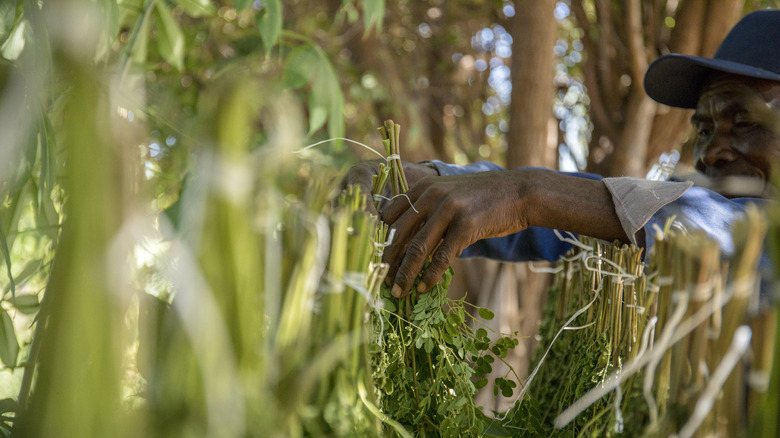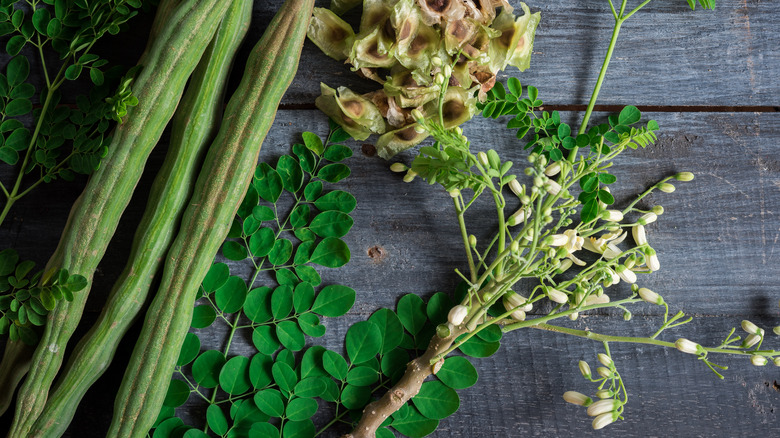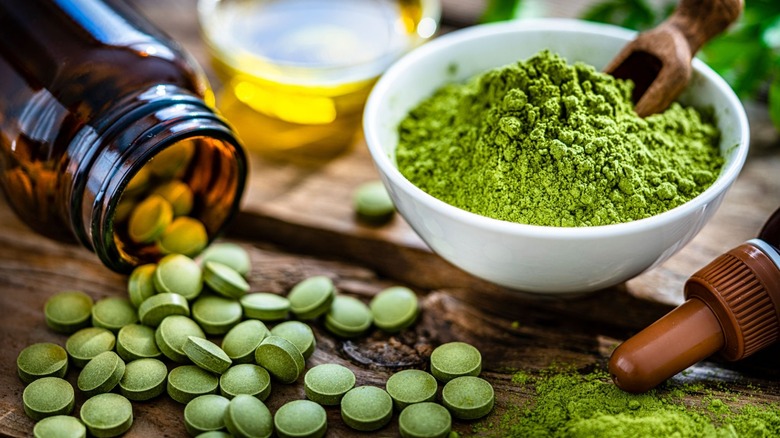Senegal's Most Popular Superfood Packs Some Serious Nourishment
Regarded as the "Gateway to Africa," Senegal marks the westernmost point of the continent where the oceanfront meets arid grassland and then touches the lush rainforest. As a result of the converging biomes, Senegal boasts a wide variety of vegetation and wildlife. During the colonial occupation by France, Senegal's economy revolved around cultivating peanuts as a cash crop.
But since gaining their independence in 1960, the Senegalese government has worked to federalize the peanut industry as well as diversify the country's agricultural commodities by promoting alternative cash crops like cotton and sugarcane (via Britannica). Since the 1980s, Senegal has been diversifying their agriculture production by allocating space for cultivating millet, sorghum, rice, and various garden produce like beans, sweet potatoes, and cassava. This great variety has led to a multitude of world-class recipes, including Senegalese bananas.
However, periodic droughts in recent years have required farmers to seek more drought-resistant crops. In pursuit of a hearty, nutritious, and versatile crop, Senegalese farmers rediscovered a plant with superfood capabilities growing in their own backyard. As global awareness and demand for this plant continue to grow, Senegal may be sitting on the next big superfood cash crop.
The moringa tree
As one of the world's most nutrient-rich sources of plant protein, amino acids, and essential vitamins and minerals, the moringa tree has been cultivated for thousands of years (via Nutu). Part of what makes moringa a superfood is its adaptability to its environment and relative low maintenance. Originally from northern India, the fast-growing, fruit-bearing tree is now distributed across tropical and subtropical regions around the world, proliferating through southeast Asia, and into Western Africa and Central and South America (per Nutu).
Not only is moringa extremely drought resistant, but it can also tolerate high-acidity soil with a pH range from 4.5 to 8 (per National Library of Medicine). Because of its resilience, today there are about 13 species of moringa worldwide, eight of which are found only in Africa (via Food and Agriculture Organization of the United Nations and National Library of Medicine).
Additionally, studies on the moringa's invasiveness state that there has been no observed evidence of the crop disrupting, invading, or displacing native flora (via CABI Digital Library). In fact, introducing the tree to arid regions can help other crops prosper by improving with soil water retention, providing shade, and combating desertification (per Peace Corps). But in addition to being super-durable, moringa trees are also some of the most versatile crops for medicinal benefits (via Science Direct).
Nutritional and medicinal benefits
It goes by many aliases: miracle tree, drumstick tree, horseradish tree, and in Senegal it's called "neverdaya," but what exactly makes the moringa tree so special (via CABI Digital Library)? For one, moringa leaves "are the world's most nutrient-rich source of plant protein, containing 92 distinct nutrients and all nine essential amino acids," along with plenty of fiber, antioxidants, and anti-inflammatory compounds according to moringa powder brand, Nutu.
If the seed pods are harvested young enough, they can be prepared like green beans (even pickled green beans), the flowers can be made into a drink, and the roots produce a flavor similar to horse radish (per CABI Digital Library). Because of its superfood nutritional density, moringa has become the key crop in combatting malnutrition and ensuring food security in rural areas of Senegal (via Peace Corps).
In addition to its nutritional content, in a study published by the National Library of Medicine, researchers found that virtually every part of the plant has been used in indigenous systems of medicine to treat various diseases like "skin infections, swelling, [anemia], asthma, bronchitis, headaches, joint pain, gout, heart problems, fevers, digestive disorders, wounds," and even diabetes. As powdered and capsule moringa becomes more widely distributed, soon people everywhere will be able to reap the benefits of this superfood while also enfranchising the local producers of the sustainably sourced "miracle tree."


